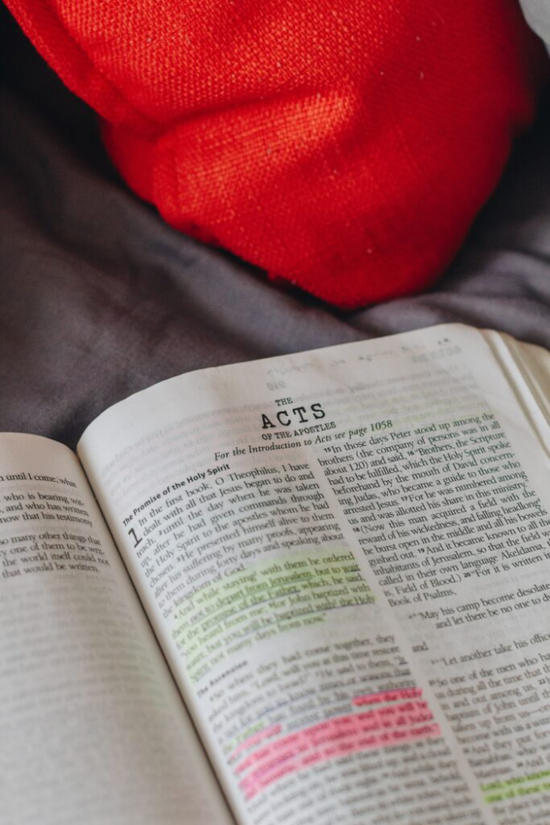Our Very Own Bible Book
May 11, 2021 Faith
There is only one Book in the Bible of which we can claim ownership - The Acts of the Apostles or the Book of Acts. You may have noticed how prominently it features in the Mass readings throughout the whole Easter period including the feast of the Ascension and right up to Pentecost. The Book tells the story of how the first followers of Jesus tried to make sense of the large print of his words, working in community and as friends. It is arguably the most interesting book in the New Testament and the most readable.
And it's our book. The Four Gospels describe in different ways the life of Jesus. They contain his life and his will, the last will and testament of someone not dead but alive, and we are its executors. The Letters of Paul, Peter, James and John and the author of that enigmatic Letter to the Hebrews, explain how we should live that life. Acts tells us how the first Christians did in fact live it. And it is a story that has not ended. It continues through history right up to our own day. The life of the Church, the lives of our families and the communities we belong to, and our own lives, are all part of that story.
Acts not merely reveals how the risen life of Jesus affected his friends; it describes what that new life did to countless people, women and men, old and young, rich and poor. It describes a life, a movement that has never stopped but has reached through the centuries to our own time and it ends abruptly because it is not finished. In fact, it is the only book in the Bible that doesn't have a proper ending because we all have our own chapter to write in it as individuals and as a community. It should properly be called The Acts of the Apostles and Our Acts too! And it won't be finished until the Second Coming of the Son of Man in glory.

Photo by Sincerely Media on Unsplash
We now live the same risen life as those first Christians did. But we do this in another time and in a different world. The challenge for us is to do in our world NOW what those first Christians did in their world THEN. A feature of the Book is the extent to which those first followers relied on each other for help and support. Friendship was everything for them. They didn't work in isolation or alone but always as part of the local Christian community, however large or small that was. And when they met for the Eucharist, they did so to strengthen that sense of belonging, that sense of community, that sense of being part of a family, part of a larger enterprise.
So let us value our families and friends (living and dead), all those who inspire us and make our lives worth living. And let us pray for the grace to see something of God's love for us in each of them. The late Philip Berrigan put it well when he said that it was only with friends that one could have hope in this adventure we call life. Amen to that!

